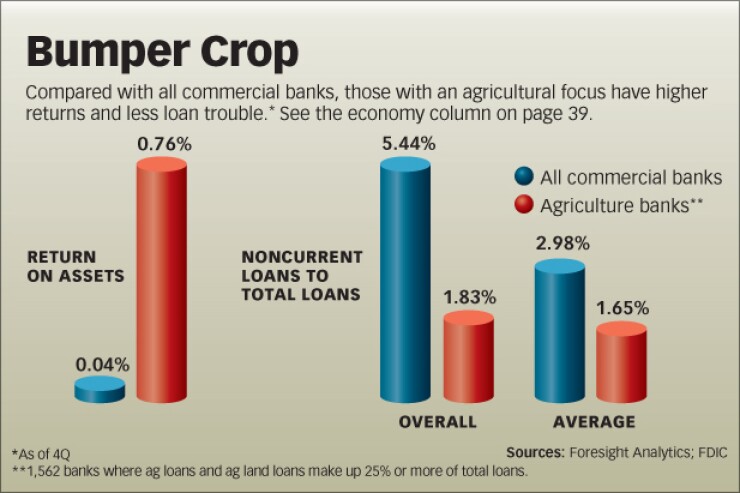-
-
If the intent is for banks to repay society, why not have them perfom community service? Hire the unemployed to fill quality jobs, open development opportunities in underbanked communities, and create income tax revenue.
April 1 -
"Intelligent" ATMs are a huge hit with consumers and business owners, but don't predict their takeover just yet.
April 1

One problem with financial education is that, while it's crucial to getting the working poor to save more, it's not all that exciting. A lesson on how compound interest works is hard enough to stay awake through, let alone motivate someone living paycheck to paycheck to start socking money away.
But low earners are turned on by games of chance, and through a unique pilot program, some Michigan credit unions are tapping into that mindset to convert thousands of them into savers.
The program, which kicked off in early 2009 with eight credit unions, is called Save to Win, and it works like this: For every $25 saved, depositors are entered into a drawing to win a grand prize of $100,000. By the end of last year, 11,000 Michiganders had opened accounts through the program (more than half were new savers) and saved close to $9 million.
"There are people who say, 'Why do you need to use a gambling gimmick to get people to save?'" says Dave Adams, the president of the Michigan Credit Union League. "But we are actually redirecting people away from gambling activity to something...mom and dad always taught us to do, which is to save."
The program has moved past the pilot phase and now has more than 20 credit unions participating. But before banks get any ideas about starting similar programs they should know that state and federal laws barthem from holding lotteries. It's only thanks to a loophole in Michigan's statute that the consumer advocacy group behind Save to Win, Doorways to Dreams in Boston, was able to test its theory that prize-linked savings programs could work as well in the United States as they have in other parts of the world.
But Doorways founder Peter Tufano, a Harvard Business School professor, says banks can still learn from Save to Win.Consumer advocates and financial institutions have generally used coercion to get people to save more when a better approach, he says, may be designing programs that get them excited about saving. Behavioral psychologists suggest that it's better to redirect behavior than try to change it. "Understanding people's motives can be quite effective in trying to design new products and services that will resonate with folks," says Tufano.
Jennifer Tescher , director of the Center for Financial Services Innovation in Chicago, says one product that successfully taps into behavioral principles is Bank of America's "Keep the Change," which rounds up debit card purchases to the nearest dollar and deposits the difference into a savings account.
That's appealing to people who want to save more but "don't want to think a whole lot about it," Tescher says. Ideally, she adds, more banks would create similar programs-and make them automatic unless customers opt out.
Tufano would like the government to play a larger role in encouraging savings. The United Kingdom offers "premium bonds," and the selling point isn't just that residents can redeem them at will, but by investing in them they are also eligible for monthly cash prizes.
"Think about what that might look like in America," Tufano says. "You put your money in and are entered for a monthly drawing, and if you want to get your money out you can. It could be a state bond product, a federal bond product, or a lottery product."





